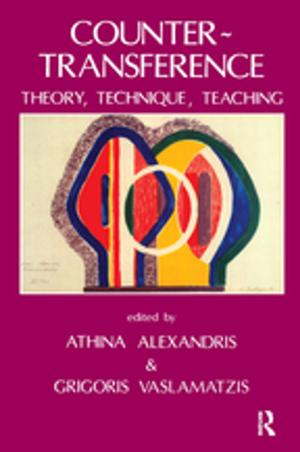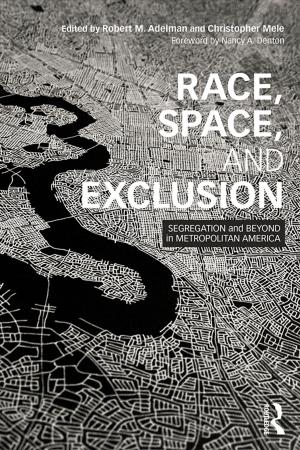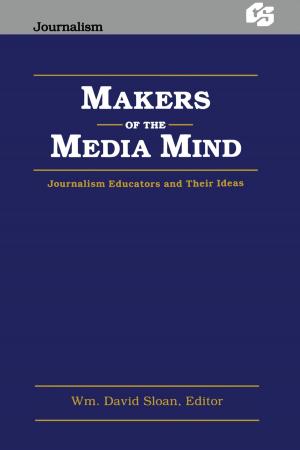Exercise and Sport in Feminist Therapy
Constructing Modalities and Assessing Outcomes
Nonfiction, Health & Well Being, Fitness, Exercise, Psychology, Mental Health, Health| Author: | Ruth Hall, Carole Oglesby | ISBN: | 9781317718901 |
| Publisher: | Taylor and Francis | Publication: | January 14, 2014 |
| Imprint: | Routledge | Language: | English |
| Author: | Ruth Hall, Carole Oglesby |
| ISBN: | 9781317718901 |
| Publisher: | Taylor and Francis |
| Publication: | January 14, 2014 |
| Imprint: | Routledge |
| Language: | English |
Integrate physical activity into feminist therapy!
This book explores the healing use of exercise and sport as a helpful adjunct to therapy from several therapeutic orientations within the feminist context. It looks at the ways that feminist orientations challenge the mind-body dichotomy and explores the benefits of integrating physical activity, exercise, and sport into therapy.
From the editors:
The contributors to this book display a diversity of theory and research approaches, including the integration of the exercise/sport sciences and exercise physiology. This volume is unique in that there has been comparatively little written about the use of exercise in therapy even though exercise is a wonderful and useful intervention tool in the treatment of depression, stress, anxiety disorders, and chronic pain. This book illustrates how exercise can be applied to inpatient and outpatient populations, to the neurotic, and to the chronically mentally ill. Exercise can reduce the incidence of chronic diseases, including diabetes and hypertension, as well as address physical problems such as obesity. Exercise can give one a sense of mastery and self-confidence. As our authors suggest, exercise must be tailored to specific issues and client populations and diagnoses, level of functioning, age, overall health, and cultural context must all be taken into account.
Exercise and Sport in Feminist Therapy: Constructing Modalities and Assessing Outcomes examines:
- the theory supporting the use of physicality to enhance various types of psychotherapy-psychoanalytic, cognitive-behavioral, constructivist, narrative, and organismic/systems
- practical methods of integrating exercise into varied orientations
- an exercise program for women with fibromyalgia
- a way to use exercise to enhance rehabilitation from breast cancer
- the use of exercise in group therapy for women suffering with chronic mental illness
- the “tend and befriend” model, which can help clients to meet their exercise program responsibilities
Integrate physical activity into feminist therapy!
This book explores the healing use of exercise and sport as a helpful adjunct to therapy from several therapeutic orientations within the feminist context. It looks at the ways that feminist orientations challenge the mind-body dichotomy and explores the benefits of integrating physical activity, exercise, and sport into therapy.
From the editors:
The contributors to this book display a diversity of theory and research approaches, including the integration of the exercise/sport sciences and exercise physiology. This volume is unique in that there has been comparatively little written about the use of exercise in therapy even though exercise is a wonderful and useful intervention tool in the treatment of depression, stress, anxiety disorders, and chronic pain. This book illustrates how exercise can be applied to inpatient and outpatient populations, to the neurotic, and to the chronically mentally ill. Exercise can reduce the incidence of chronic diseases, including diabetes and hypertension, as well as address physical problems such as obesity. Exercise can give one a sense of mastery and self-confidence. As our authors suggest, exercise must be tailored to specific issues and client populations and diagnoses, level of functioning, age, overall health, and cultural context must all be taken into account.
Exercise and Sport in Feminist Therapy: Constructing Modalities and Assessing Outcomes examines:
- the theory supporting the use of physicality to enhance various types of psychotherapy-psychoanalytic, cognitive-behavioral, constructivist, narrative, and organismic/systems
- practical methods of integrating exercise into varied orientations
- an exercise program for women with fibromyalgia
- a way to use exercise to enhance rehabilitation from breast cancer
- the use of exercise in group therapy for women suffering with chronic mental illness
- the “tend and befriend” model, which can help clients to meet their exercise program responsibilities















